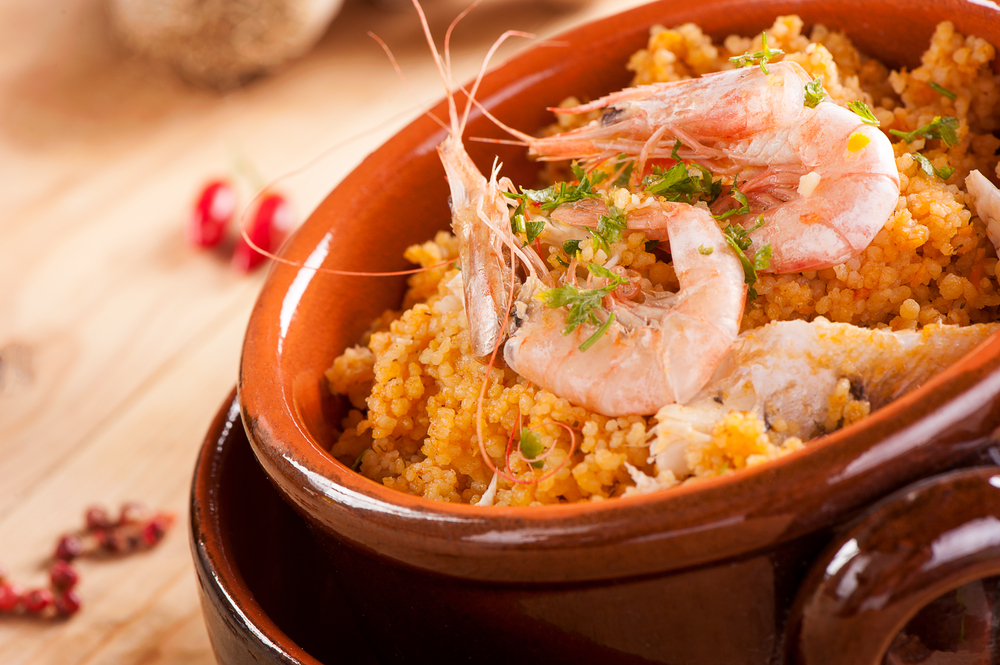Introduction to African Spices and Seafood Pairings
Africa’s culinary landscape is rich with aromatic spices that transform simple seafood dishes into extraordinary experiences. Understanding the art of pairing these spices with seafood is key to unlocking a world of flavors. This guide offers a flavorful journey through the continent’s best spice and seafood combinations. We explore the mutual enhancements of African spices on various types of seafood, creating dishes that delight the palate and offer a glimpse into the continent’s diverse gastronomy. Embarking on this flavor adventure, we witness an exciting blend of cultures and tastes, highlighting the continent’s culinary wealth.
Popular African Spices for Seafood Dishes
Highlighting Key Spices and Their Flavor Profiles
From the fiery Berbere to the aromatic Ras el Hanout, African spices offer unique profiles that enhance seafood dishes. Key spices like grains of paradise lend a peppery bite, while Ethiopian cardamom provides a sweet and floral aromatic. Each spice can elevate simple ingredients to complex and harmonious dishes. Beyond providing flavor, these spices also merge cultural stories and traditions, making every meal a culinary journey.
Regional Spice Blends Ideal for Seafood
African cuisine is not monolithic; it varies greatly across regions. North African Chermoula, a blend of herbs and spices used in Moroccan cooking, adds a bright and herbaceous quality, while the West African Suya spice mix offers a smoky nuttiness to grilled fish. These mixes incorporate layers of flavor that satisfy any craving and entice the senses. They do not just season the seafood; they offer a cultural immersion into the depths of African culinary arts.
Techniques for Infusing Seafood with African Spices
Marinades, Rubs, and Seasoning Methods
Achieving the full potential of African spices in seafood calls for various infusion techniques. Marinades allow for deep penetration of flavors, while dry rubs create a flavorful crust on the seafood’s surface. The timing and combination of spices in the seasoning process are crucial for enhancing taste while preserving the seafood’s inherent flavors. Let’s dive into methods that ensure a perfect marriage of aromas, resulting in a dish that encapsulates the essence of African spice traditions.
Cooking Tips for Maximizing Flavor
Unlocking the full flavor potential of African spices and seafood requires more than just mixing ingredients; it involves a delicate balance of timing, heat, and cooking techniques. Sauteing spices before adding seafood releases essential oils, while slow cooking in stews allows for a gradual melding of taste. Perfection is found in attention to detail where the symbiosis of spice and technique leads to an exceptional dining experience as vibrant and diverse as Africa itself.
Creative African Spice-Infused Seafood Recipes

Berbere-Spiced Grilled Fish
A dish showcasing Ethiopia’s robust flavors, Berbere-spiced grilled fish is a testament to the rich culinary heritage of Africa. The complex spice blend encompassing chili, garlic, ginger, and more, gifts the fish a fiery yet deeply layered profile. Grilling the fish allows the spices to form a delicious crust while keeping the inside moist and tender. This recipe is a daring yet delightful exploration of African spice magic.
Harissa Shrimp Skewers
Harissa, a Tunisian chili paste, is both versatile and vibrant. When used in marinades, it imparts a delectable heat and complexity to dishes like shrimp skewers. The balance of smokiness and spice from the harissa pairs beautifully with the sweetness of the shrimp, making this a crowd-pleaser. Infusing the harissa with oil, garlic, and citrus amplifies the flavors, making every bite a fiery delight.
Ras el Hanout Seafood Stew
Ras el Hanout, often referred to as the ‘top of the shop’, brings a majestic spice medley from the heart of Morocco to the table. This blend becomes the star of a seafood stew, imparting warm, floral, and earthy tones alongside a gentle heat. As the seafood simmers with root vegetables and tomatoes, the ras el Hanout fuses, creating an aromatic and hearty dish to be remembered.
Suya-Spiced Calamari
Bringing the unmistakable flavors of West Africa to the forefront, Suya-spiced calamari is a celebration of textures and tastes. The crunchy Suya crust, derived from groundnuts and spices, encases the tender calamari, creating a dish that is as addictive as it is delicious. The play of flavors between the nutty coating and the succulent seafood is a testimony to the ingenuity of African spice use.
Pairing Spices with Different Types of Seafood
Choosing Spices Based on Seafood Variety
The versatility of seafood calls for a discerning selection of spices. Delicate fish like tilapia partner well with subtle blends, preventing overpowering, while robust spices complement the strong flavors of mackerel or tuna. Understanding the characteristics of each seafood type allows for a symbiotic relationship with spices, optimizing the natural flavor while introducing a desirable twist.
Balancing Spice Intensity with Delicate Flavors
When fusing bold African spices with seafood, balancing is vital. A spice’s intensity should enhance, not overshadow, the seafood’s freshness. It’s about achieving harmony in a dish where spices act as a backdrop, complementing and elevating the main ingredient. Mastering this balance ensures that each bite offers a cohesive taste that celebrates both the spice and the seafood.

Health Benefits of Using Spices in Seafood Cooking
Nutritional Advantages of Natural Spices Over Processed Seasonings
Incorporating spices into seafood cooking isn’t only about taste; it’s about health. Natural spices are rich in antioxidants and possess anti-inflammatory properties. Unlike processed seasonings that often contain high levels of sodium and artificial additives, natural spices offer flavor without negative health implications. They can also aid digestion and boost metabolism, making them a beneficial element of a nutritious diet. By choosing natural African spices, one enriches the culinary experience and nurtures the body.
Tips for Buying and Storing Seafood and Spices
Best Practices for Freshness and Quality
Regardless of how tantalizingly spices can dress up a dish, the foundation of any memorable seafood meal is its freshness. Selecting the highest quality, sustainably-sourced seafood sets the stage for a culinary masterpiece. Additionally, proper storage of both seafood and spices is imperative. Keeping spices in a cool, dark place maintains their potency, while seafood should be appropriately refrigerated or frozen to preserve its quality.
FAQs on Preparing African Spice-Infused Seafood
Can I use African spices for mild-flavored fish?
Indeed, African spices can greatly enhance mild-flavored fish. The key is to use them sparingly to bring out the fish’s subtle taste without overwhelming it. For such delicate fish, consider using milder spice blends or herbs like parsley, cilantro, or a light touch of cumin and coriander to add depth without domination.
How do I make sure the spices don’t burn while cooking?
To prevent spices from burning, start by cooking them on a lower heat. If you’re using a rub, ensure the seafood is not over direct flaming heat on the grill. For stews, add spices after the liquid to allow them to blend in gently. A little oil can also help temper the heat and help the spices release their flavors without scorching.
What is the best way to marinate seafood with African spices?
The best way to marinate seafood with African spices is to allow ample time for the flavors to meld. A mix of oil and an acid like lemon juice with spices makes for a balanced marinade. Submerge the seafood fully and let it rest in the refrigerator for at least 30 minutes to a couple of hours, depending on the type of seafood and the intensity of flavors desired.
